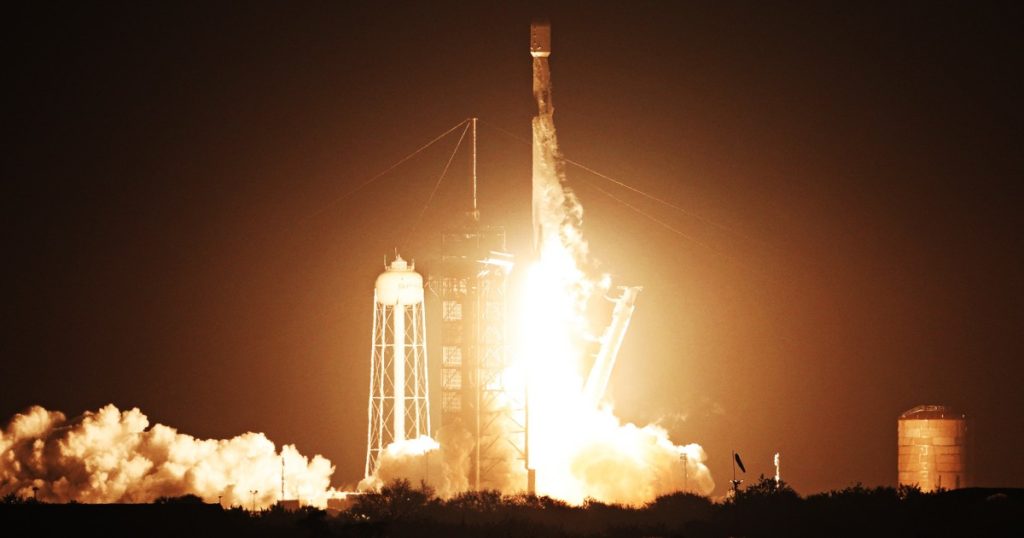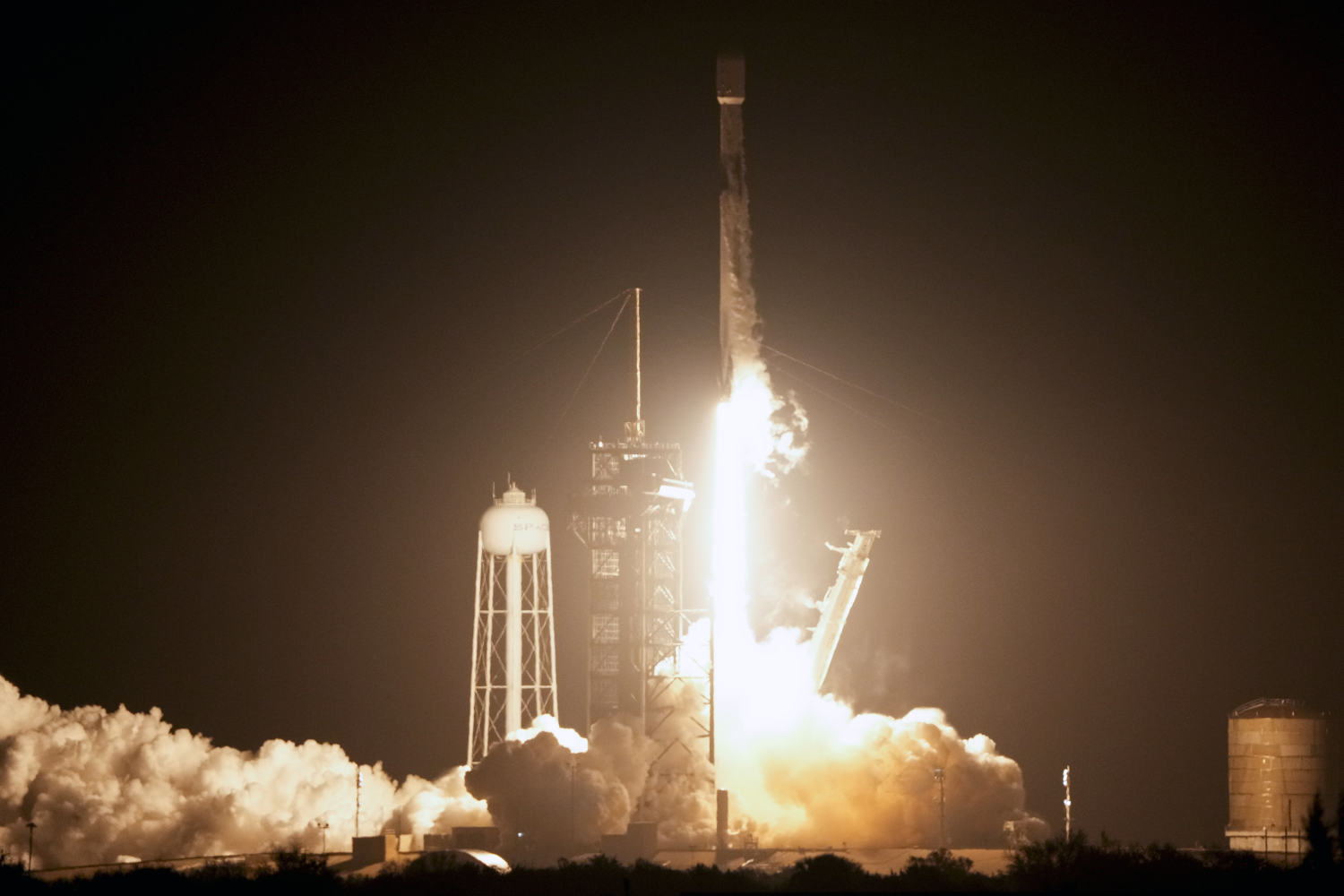

Second time was a charm for a Houston-based company that launched a privately built moon lander into space early Thursday.
The spacecraft, developed by Intuitive Machines, lifted off at 1:05 a.m. ET from NASA’s Kennedy Space Center in Cape Canaveral, Florida. The lander rode into orbit atop a SpaceX Falcon 9 rocket.
The launch was originally scheduled to take place on Wednesday, but a glitch with the rocket’s methane fuel forced SpaceX to stand down.
Intuitive Machines is aiming to become the first to land a commercially built spacecraft on the lunar surface. If successful, it would also be the first moon landing for the U.S. in more than 50 years.
The lander, nicknamed Odysseus, is expected to spend a week in space before attempting to settle on the moon on Feb. 22.
The mission comes one month after a separate company tried — but ultimately failed — to similarly send a lander to the moon. That spacecraft, built by Pittsburgh-based Astrobotic Technology, suffered a crippling fuel leak shortly after launch that forced the company to scrap the entire mission.
Astrobotic Technology and Intuitive Machines are part of NASA’s Commercial Lunar Payload Services program, which aims to spur development of moon landers by private-sector companies that NASA could eventually hire to transport cargo and scientific instruments to the lunar surface.
On the coming flight, the lander will carry a mix of commercial cargo and NASA science instruments.
Odysseus is expected to touch down near the moon’s south pole, a region that has long been intriguing for scientists because water ice is thought to be relatively abundant within craters.
NASA’s Commercial Lunar Payload Services program is part of the agency’s Artemis program, which seeks to return astronauts to the moon over the next few years. NASA recently announced delays in a pair of coming Artemis missions, pushing a lunar fly-around that was to launch later this year to 2025 and postponing the first Artemis landing attempt to the following year.
NASA wants to eventually launch regular missions to the moon to build a base camp.

 Latest Breaking News Online News Portal
Latest Breaking News Online News Portal




